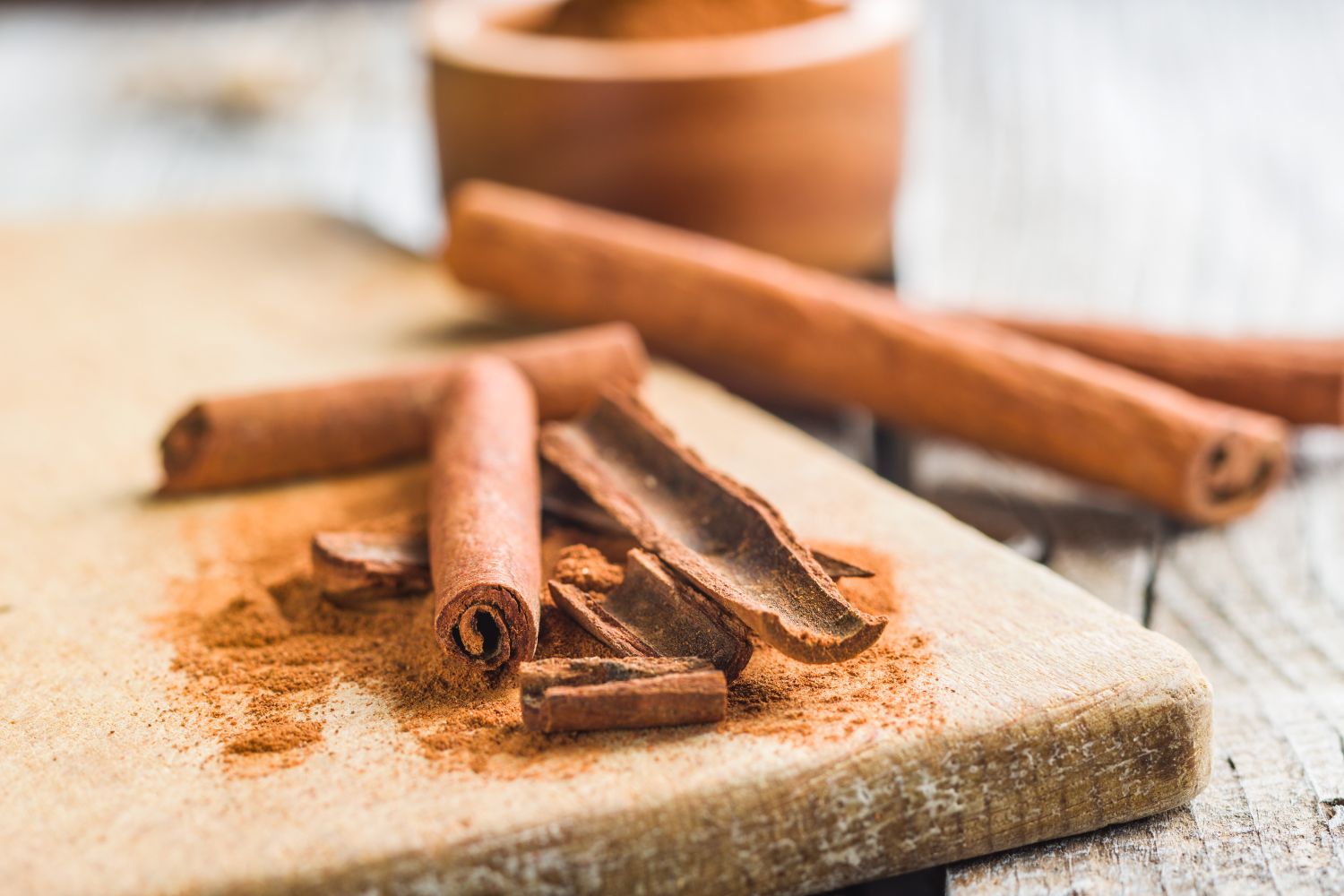Cinnamon, a spice cherished across countless cultures and cuisines, has long been celebrated for its distinctive aroma and warm, sweet flavor. You can find cinnamon in everything from pastries and hot beverages to savory dishes and spice blends. Yet, despite its popularity, many people remain unaware of the full scope of its potential health benefits. Recent research has shed light on how cinnamon—especially the Ceylon variety—may be far more than just a versatile spice for your kitchen cabinet. Below is an in-depth exploration of why cinnamon merits a place in a well-balanced diet, how to incorporate it safely, and the range of benefits it may offer.
A Brief Overview of Cinnamon
Cinnamon is derived from the inner bark of trees belonging to the genus Cinnamomum. After harvesting, the bark is dried and rolled into quills or ground into a fine powder. While many people assume all cinnamon is created equal, there are actually multiple types, with the two most common being Cassia cinnamon and Ceylon cinnamon. Cassia cinnamon, often grown in China, Indonesia, and Vietnam, has a robust, bold flavor that many find familiar. In contrast, Ceylon cinnamon, sometimes referred to as “true cinnamon,” has a lighter, more delicate taste and is predominantly cultivated in Sri Lanka.

Ceylon vs. Cassia
The distinction between Ceylon and Cassia cinnamon goes beyond taste. Cassia cinnamon contains higher levels of a natural compound called coumarin, which in large doses can be harmful to the liver and kidneys. Ceylon cinnamon generally has a far lower coumarin content, making it a safer option if you plan to consume cinnamon frequently in significant quantities. Moderate use of Cassia in culinary dishes is still common worldwide, but those who regularly take cinnamon as a supplement or wish to consume it daily for potential health benefits often prefer Ceylon due to its reduced coumarin content.
Nutritional Profile and Key Compounds
Cinnamon’s impressive array of health properties is derived from various bioactive compounds and nutrients, including:
- Manganese: An essential mineral that plays a crucial role in bone health, metabolism, and antioxidant function.
- Calcium: Vital for maintaining strong bones and teeth, as well as supporting muscle function and nerve transmission.
- Fiber: Present in small amounts, fiber aids in digestion and contributes to a feeling of fullness after meals.
- Polyphenols: These potent antioxidants help neutralize free radicals, which can damage cells and contribute to chronic diseases.
What makes cinnamon particularly intriguing are the unique plant compounds it contains, such as cinnamaldehyde, cinnamic acid, and cinnamate. These compounds are believed to be partly responsible for cinnamon’s antioxidant, anti-inflammatory, and antimicrobial activities.

Potential Health Benefits
Although cinnamon has been used in traditional medicine for centuries, scientific research continues to unveil possible advantages associated with regular consumption. While it is important to approach these findings with a balanced perspective—cinnamon is not a standalone cure—all the existing data suggests it may complement an overall healthy lifestyle.
A. Blood Sugar Regulation
Perhaps the most commonly discussed benefit of cinnamon revolves around its potential to support healthy blood sugar levels. Several studies indicate that cinnamon may improve insulin sensitivity, helping cells to utilize glucose more effectively. This is of particular interest to people with type 2 diabetes or prediabetes. By increasing insulin sensitivity, cinnamon could help stabilize energy levels throughout the day. While promising, these findings are not a replacement for proper medical treatment or a balanced diet. Anyone with a chronic condition should consult their healthcare provider before making changes to their routine.
B. Heart Health
Another area that has garnered attention is cinnamon’s potential impact on cholesterol and triglyceride levels. Some research suggests that incorporating small amounts of cinnamon into a daily diet could help lower LDL cholesterol (the “bad” cholesterol) and triglycerides while boosting HDL cholesterol (the “good” cholesterol). A healthier cholesterol profile reduces strain on arteries and may lower the risk of heart-related complications over time. However, more extensive clinical trials are needed to determine the exact mechanisms at play and to confirm the extent of these effects in diverse populations.

C. Anti-Inflammatory Effects
Chronic inflammation is a key factor contributing to a wide range of health problems, including arthritis, cardiovascular disease, and certain metabolic disorders. Cinnamon contains various compounds that exhibit anti-inflammatory properties, potentially helping to mitigate low-grade inflammation in the body. Regular consumption could thus complement other anti-inflammatory strategies, like eating a diet rich in fruits, vegetables, and whole grains, as well as engaging in consistent physical activity.
D. Antioxidant Support
Cinnamon’s polyphenol content gives it significant antioxidant capacity, which helps protect cells from oxidative stress. Oxidative stress occurs when free radicals overwhelm the body’s antioxidant defenses, leading to cellular damage that accelerates aging and contributes to chronic diseases. Adding antioxidant-rich foods—including cinnamon—to your daily routine can be a proactive measure in maintaining overall wellness and longevity.
E. Weight Management
Although cinnamon is not a magic bullet for shedding pounds, its potential ability to balance blood sugar and reduce sugar cravings may have modest benefits for weight management. When blood sugar levels spike, this can trigger cycles of hunger and overeating. Foods that stabilize these fluctuations could, in theory, help individuals make more balanced dietary choices. Combined with a nutritious diet, regular exercise, and other lifestyle factors, cinnamon may play a small supportive role in maintaining a healthy body weight.

F. Immune System Support
Cinnamon’s antimicrobial properties have drawn interest from scientists exploring natural ways to inhibit bacterial, fungal, and viral activity. While it won’t replace medical interventions, cinnamon’s natural antimicrobial features could aid in everyday defenses against mild threats. For instance, some people use it as a home remedy in warm beverages to soothe a sore throat or mild cold symptoms. As always, it’s crucial to seek medical advice for serious illnesses, but adding some cinnamon to your daily meals might offer a gentle boost to immune health.
Safe Incorporation into Your Diet
Choosing the Right Cinnamon
For those aiming to consume cinnamon regularly, experts often recommend opting for Ceylon cinnamon due to its lower coumarin content. Excessive coumarin intake, most commonly linked to Cassia cinnamon, can put stress on the liver over time—especially if you take large amounts or already have an underlying liver condition.
Mindful Dosage
A general guideline suggests that up to one teaspoon (around 2.5 to 3 grams) of cinnamon powder per day is within a reasonable range for most healthy adults. Still, individual reactions vary. If you’re unsure whether cinnamon is right for you—perhaps due to preexisting health conditions or medications—consult a qualified healthcare professional before significantly increasing your intake.
Ideas for Using Cinnamon
- Morning Oatmeal or Cereal: A sprinkle of ground cinnamon can enhance flavor while boosting antioxidant intake.
- Smoothies and Juices: Add a small dash for depth and sweetness without extra sugar.
- Baked Goods: Whether in muffins, banana bread, or cookies, cinnamon provides warmth and an inviting aroma.
- Savory Dishes: Experiment with cinnamon in curries, chili, or Middle Eastern-inspired meals to introduce a slightly sweet, earthy note.
- Warm Beverages: Stir a pinch into coffee, tea, or hot cocoa for added fragrance and taste.

A Word of Caution and a Balanced Perspective
While cinnamon is widely recognized as a safe, natural spice, it’s always prudent to consider the broader context of any health claim:
- Not a Substitute for Medical Advice: Though studies suggest potential benefits, cinnamon cannot replace doctor-prescribed treatments, especially for serious conditions like diabetes or high cholesterol.
- Allergic Reactions: As with any food, a small proportion of people may experience allergies or intolerances. If adverse reactions occur, discontinue use and consult a healthcare professional.
- Interactions with Medications: Certain compounds in cinnamon might interact with diabetes or anticoagulant medications. If you’re on any daily medication, it’s best to seek medical guidance before adding high doses of cinnamon.
Cinnamon shines most when paired with a sensible eating plan rich in vegetables, fruits, lean proteins, whole grains, and healthy fats. Also, balancing your diet with regular physical activity, adequate hydration, and sufficient rest is paramount. No single spice or supplement can offset an otherwise unhealthy lifestyle.
